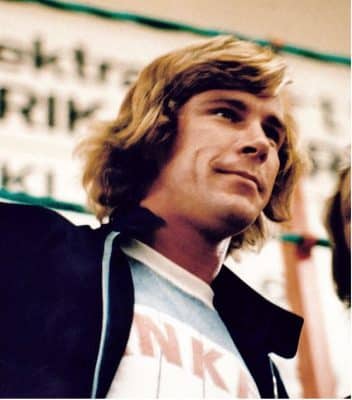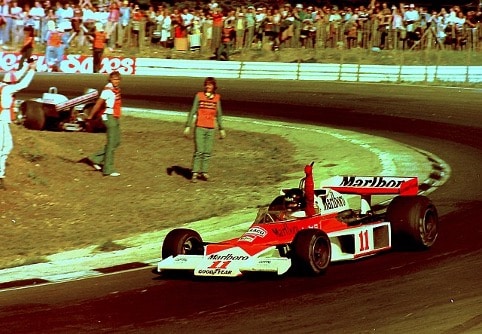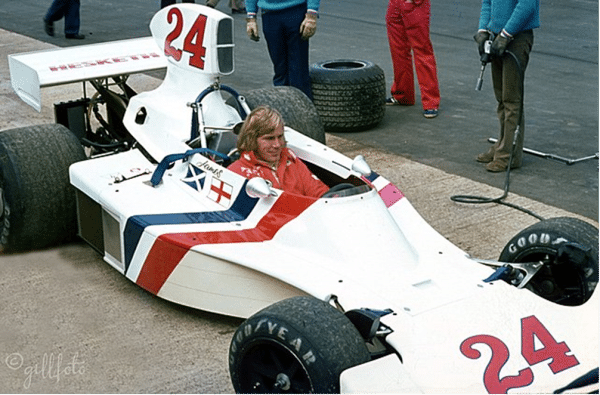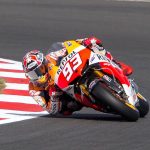James Hunt was an iconic Formula One driver who won the World Championship in 1976. He was known for his irreverent character, super-fast driving skills, and his love for the hedonistic lifestyle.
Hunt was a true icon of his time, driving during one of the most dangerous periods in the sport’s history. From his early years to his premature death, Hunt’s life was filled with highs and lows that cemented his legacy as one of the most entertaining and captivating drivers in F1 history.
Born in 1947 in Surrey, England, Hunt grew up with a passion for motorsports. His father was a successful businessman, and Hunt was expected to follow in his footsteps. However, he had other plans. He dropped out of school and pursued his dream of becoming a racing driver. His first experience behind the wheel was in a Mini at a hill climb in 1966, and from there, his love for racing only grew.
Hunt’s early years in motorsports were marked by a string of crashes and mishaps… hence the birth of the nickname “Hunt the shunt”. However, he was determined to succeed, and in 1973, he landed a drive with the Hesketh Racing team. It was the beginning of an unstoppable rise.

Hunt quickly gained a reputation for his nonchalant attitude towards the dangers of the sport and for his fearless attitude. He was known for drinking heavily, smoking, and partying late into the night, but he never let his off-track antics get in the way of his on-track success. His approach to racing was simple: drive as fast as possible and take as many risks as necessary to win.
In 1975, Hunt joined the McLaren team, where he formed a legendary rivalry with Austrian driver Niki Lauda. The two were polar opposites: Hunt was the laid-back party animal, while Lauda was the meticulous and serious technician. Their rivalry culminated in the 1976 season, which would go down in history as one of the greatest in F1 history.
The victory and the controversy
The 1976 British Grand Prix was held at Brands Hatch on July 18, 1976. The 76-lap race was the ninth round of the Formula One season. James Hunt was involved in a first corner crash which set off the red flags. Hunt returned his damaged car to the pits but instead of completing a full lap of the track, he took the Cooper Straight slip road. The stewards said Hunt was not allowed to restart because he was off the track when the red flag was shown.
The news caused much anger from the British crowd, who chanted Hunt’s name, until the stewards, fearing crowd trouble, announced that Hunt would be allowed to attend the restart. Hunt duly won the revived race. Immediately after the race, the Ferrari, Tyrrell and Fittipaldi teams protested the inclusion of Hunt’s car. In September, two months after the event, a decision was made and Hunt was disqualified, giving Niki Lauda the race win.

The 1976 season was marked by tragedy, with a number of drivers losing their lives in accidents. However, it was also the season that cemented Hunt’s legacy as a world champion.
Hunt’s fiercest opponent in 1976, Niki Lauda, had an accident that almost cost his life at the Nurburgring racetrack in Germany. Lauda was badly injured and suffered severe burns, but he made an unexpected come back at the Italian Grand Prix in Monza. The championship was still open going into the final race of the season in Japan, where Hunt was three points behind Lauda in the championship standings.
The race was held in torrential rain, and Lauda, fearing for his safety, retired after just two laps. Hunt went on to finish third, securing the championship by a single point.
Hunt’s championship victory was a testament to his tenacity and skill as a driver. He had overcome the odds to become a world champion, and his irreverent personality had won over legions of fans. However, his success was short-lived. He retired from F1 in 1979, and his post-racing years were marked by personal struggles and health problems. He died in 1993 at the age of 45.
Here is a link to videos of James Hunt racing.
Life off the track
Hunt’s life off the track was marked by personal struggles. He struggled with alcoholism and depression, and his relationships were often tumultuous. In 1983, Hunt was diagnosed with pancreatic cancer, which had spread to his liver. He underwent treatment but sadly passed away on June 15, 1993, at the age of 45.
Hunt’s untimely death was a shock to the world of motorsports, and it was a tragic end to a life that had been full of excitement and adventure. However, his legacy as a racing driver continues to inspire new generations of fans. His unorthodox approach to the sport and his irreverent personality won over fans all over the world, and his championship victory in 1976 remains one of the greatest moments in F1 history. He was a true icon of his time, known for his larger-than-life personality that he showed in and outside the racing arena. He will forever be remembered as one of the most captivating and entertaining drivers in F1 history.
In addition to his success on the track, Hunt also made an impact as a commentator and broadcaster. After retiring from racing, he worked as a commentator for the BBC, providing his expert analysis on races and sharing his insights into the world of motorsports. He was known for his wit and humor, and his commentary was always entertaining and informative.
His legacy serves as a reminder that sometimes an unconventional and irreverent approach can lead to greatness.
 The Career
The Career
James Hunt’s career in Formula One spanned from 1973 to 1979. During this time, he raced for several teams, including Hesketh Racing, McLaren, and Wolf Racing. Here is a breakdown of his seasons:
- 1973: Hunt made his Formula One debut with the Hesketh Racing team. He competed in 14 races and finished in the top six in six of them. He ended the season in eighth place in the championship standings.
- 1974: Hunt continued to drive for Hesketh Racing and had his first Formula One victory at the 1974 Race of Champions. He finished the season in third place in the championship standings.
- 1975: Hunt joined the McLaren team and had a successful season, winning two races and finishing in second place in the championship standings behind Niki Lauda.
- 1976: The 1976 season was a defining one for Hunt, as he won his only championship title. He won six races that season, including the season-ending race in Japan, which secured the championship for him.
- 1977: Hunt’s season with McLaren in 1977 was marked by a number of retirements and crashes. He finished the season in fifth place in the championship standings.
- 1978: Hunt moved to the Wolf Racing team for the 1978 season. He had a difficult season, failing to finish in the top three in any race.
- 1979: Hunt’s final season in Formula One was with the Wolf Racing team. He retired from racing after the Monaco Grand Prix, citing a lack of motivation.
Hunt in the Movies
There are many great films, pictures, and videos that showcase James Hunt’s skill and personality. Here are a few examples:
- “Rush” (2013): This biographical film chronicles the rivalry between James Hunt and Niki Lauda during the 1976 season. It features some incredible race scenes and gives a glimpse into Hunt’s personality off the track.
- “James Hunt – The Boy From Summer”: This documentary provides an in-depth look at Hunt’s life, from his childhood to his death. It includes interviews with family members, friends, and colleagues.
Picture, top to bottom:
- James Hunt at some sort of conference preceding the 1977 Swedish Grand Prix, Uploader’s father, digitized and altered by Mr.choppers, Creative Commons Attribution-Share Alike 3.0
- James Hunt prematurely celebrates at the 1976 British Grand Prix, Martin Lee, Creative Commons Attribution-Share Alike 2.0
- James Hunt in Hesketh March 308, Brands Hatch Pit lane, Simoniz Daily Mail Race of Champions, England 1974, Gillfoto from Juneau, Alaska, United States, Creative Commons Attribution-Share Alike 3.0















